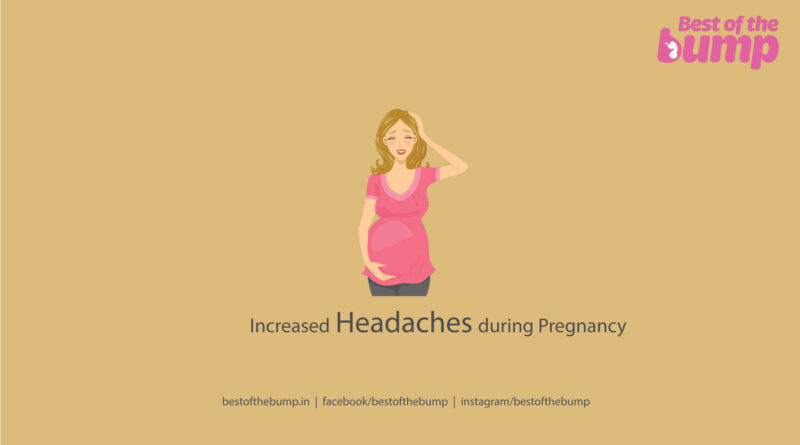Increased Headaches during Pregnancy
Increased Headaches during Pregnancy, Pregnancy is a miraculous journey that brings joy, anticipation, and excitement. However, it also comes with its share of challenges, one of which is increased headaches. Headaches during pregnancy are a common phenomenon, and they tend to grow in intensity as the pregnancy progresses. The potential culprits behind these headaches range from hormonal changes to lack of proper diet, allergies, fatigue, stress, and more. While it may be difficult to completely eliminate headaches during pregnancy, there are several ways to find temporary relief and manage them effectively. In this comprehensive guide, we will explore the causes of increased headaches during pregnancy and provide practical remedies and precautions to help pregnant women alleviate their discomfort.
Understanding the Causes of Increased Headaches during Pregnancy

- Hormonal Changes: Fluctuations in hormone levels, particularly an increase in estrogen and progesterone, can trigger headaches during pregnancy.
- Lack of Proper Diet: Skipping meals or not consuming a balanced diet can lead to nutritional deficiencies, which may contribute to frequent headaches.
- Allergies: Pregnancy can make women more susceptible to allergies, and allergic reactions might manifest as headaches.
- Lack of Sleep or General Fatigue: Pregnancy can cause sleep disturbances and lead to overall fatigue, both of which are linked to headaches.
- Sinus Congestion: Nasal congestion or sinus issues can exacerbate headaches during pregnancy.
- Eyestrain: Vision changes and eyestrain, common during pregnancy, can also be associated with headaches.
- Stress and Depression: Emotional stress and depression can be triggers for headaches during pregnancy.
- Hunger and Dehydration: Not consuming enough fluids or going hungry can lead to headaches.
Remedies for Managing Increased Headaches during Pregnancy
- Maintain Regular Meals: Instead of skipping meals, focus on consuming regular, nutritious meals to maintain stable blood sugar levels and prevent headaches.
- Prioritize Rest and Avoid Fatigue: Pregnancy demands extra energy, so getting enough rest is crucial. Avoid excessive physical strain and practice relaxation techniques.
- Ensure Fresh Air and Ventilation: Headaches can be aggravated in stuffy or suffocated environments. Spend time in well-ventilated spaces with plenty of fresh air.
- Practice Proper Postures: Adopting good postural habits can relieve tension in the neck and shoulders, reducing the occurrence of headaches. Consider yoga classes or gentle exercises designed for pregnant women.
- Consider Prenatal Massages and Acupuncture: These alternative therapies can provide relief from headaches and promote relaxation during pregnancy.
Precautions and Self-Care Strategies

- Hydration: Increased Headaches during Pregnancy, Drink plenty of water throughout the day to stay adequately hydrated and prevent dehydration-related headaches.
- Regular Exercise: Engage in gentle exercises like walking, swimming, or prenatal yoga to improve circulation and reduce stress.
- Manage Stress: Practice stress-reduction techniques such as meditation, deep breathing exercises, or prenatal yoga to alleviate headaches triggered by stress.
- Consult a Healthcare Professional: If headaches persist despite lifestyle changes, consult your healthcare provider to rule out any underlying medical conditions and explore safe treatment options.
- Medication Usage: Avoid over-the-counter medications without medical supervision, especially during pregnancy, as some may pose risks to the developing fetus.
When to Seek Medical Attention
Increased Headaches during Pregnancy, while headaches during pregnancy are common, certain circumstances warrant immediate medical attention:
- Severe or Persistent Headaches: If headaches become severe or persistent, seek medical advice promptly.
- Vision Changes: Any sudden vision changes accompanying headaches should be evaluated by a healthcare professional.
- Swelling or High Blood Pressure: Headaches accompanied by swelling in the face, hands, or legs or high blood pressure require immediate attention.
- Nausea or Vomiting: Headaches accompanied by persistent nausea or vomiting should be reported to a healthcare provider.
Increased headaches during pregnancy can be a challenging aspect of this beautiful journey. Understanding the potential causes and implementing effective remedies and precautions can significantly reduce the impact of headaches on pregnant women’s well-being. By adopting a holistic approach that includes proper nutrition, rest, fresh air, good posture, and stress management, pregnant women can experience greater relief from headaches and focus on embracing the joys of pregnancy. Remember to consult with healthcare professionals for personalized guidance and support during this crucial phase of life.
See this also.




